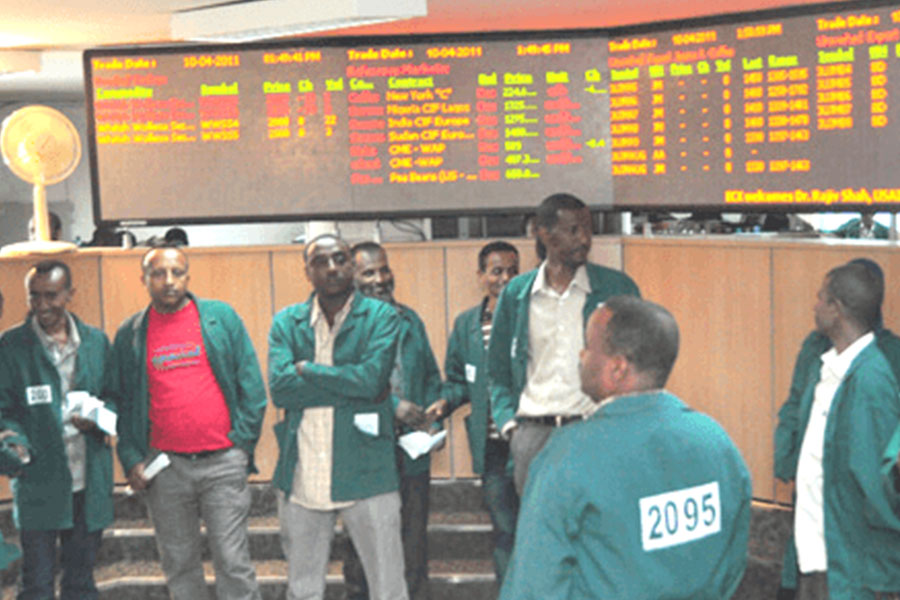
Fortune News | Mar 14,2020
It was a while since I had an issue finishing up with a government ministry. This time, I decided to do it online through their website. Sure, there are changes to the portal's look, and essential updates not common among local sites are present, yet not enough to make my visit in person unnecessary.
It was as I contemplated about going to the office that I went back in time. The news about an upcoming computer training program was running through the grapevine in a public enterprise I used to work with ages ago. We were all ears, waiting for clues about who would be attending.
It gained even more weight as it was also staged at Addis Abeba University. No doubt, though we waited only in vain, those days all eyes peered towards the offices where the recently arrived desktop computers were mounted.
It was all for department heads, while our plea to include some of us young professionals went unheeded. Just a couple of years away from retirement, our department head was tickled pink by his future with the computer. Banging his office desk in a brief discourse, he justified the selection by showcasing how easily he could retrieve any data encoded into the computer with a touch of the button.
Luckily for us young professionals, the time coincided with the launch of big infrastructure projects in the public enterprise we were working at, needing the involvement of a number of young and ambitious engineers. It was then we realised that being proficient in IT had become an indispensable criterion to one's profession. Thanks to them, they helped us grasp the basic skills to handle office routines.
It is from those days we started to say, “what’s not to like about computers?”
Being upset with the preceding and lack of challenge in our assignments, almost all of us, me with my friends, left the public enterprise. However, as a result of what we went through, IT became more or less an attitude or a passion, and in retrospect, we regret our inability to institutionalise that attitude.
As I moved to the private sector, the environment was very conducive for access to computers. However, as a result of two enterprise resource planning (ERP) – core integration of business process - projects which did not materialise despite highly inflated expectations, individual initiatives were not encouraged. Still, it did not stop us from sorting data for ourselves to make analysis easier. The attitude held strong.
A leading expert in motivation and personality psychology, Carol Dweck, writes mindset is not a minor personality quirk. It creates our whole mental world, explaining how we become optimistic or pessimistic. It shapes our goals, our attitude toward work and relationships, and how we raise our kids, ultimately predicting whether or not we will fulfil our potential.
She says that everyone has one of two essential mindsets.
“If you believe that your qualities are unchangeable — the fixed mindset — you will want to prove yourself correct over and over rather than learning from your mistakes,” she writes. “In the growth mindset, failure can be a painful experience. But it doesn’t define you. It is a problem to be faced, dealt with, and learned from.”
I hope government offices come to a similar realisation in developing their human capital. It will make great inroads in helping come up with a more qualified, functional, and accessible process that serves users much better.
Neither should future ERPs be one size fits all. ERP is all about operational and administrative efficiencies and cost-saving. Its virtue needs to be clearly familiarised to workers involved in creating, processing, or recording information, meanwhile making them aware that they are personally responsible for the entry’s integrity. It is then that ERP becomes an attitude among workers, proving the senior management’s growth mindset.
PUBLISHED ON
Jan 29,2022 [ VOL
22 , NO
1135]


Fortune News | Mar 14,2020

Fortune News | Sep 14,2024

Radar | Sep 04,2021

Fortune News | Aug 20,2022

Radar | Nov 20,2021

Radar | Mar 12,2022

Fortune News | Nov 16,2019

Viewpoints | Nov 29,2020

Radar | Jan 05,2020

Fortune News | Mar 07,2020

Dec 22 , 2024 . By TIZITA SHEWAFERAW
Charged with transforming colossal state-owned enterprises into modern and competitiv...

Aug 18 , 2024 . By AKSAH ITALO
Although predictable Yonas Zerihun's job in the ride-hailing service is not immune to...

Jul 28 , 2024 . By TIZITA SHEWAFERAW
Unhabitual, perhaps too many, Samuel Gebreyohannes, 38, used to occasionally enjoy a couple of beers at breakfast. However, he recently swit...

Jul 13 , 2024 . By AKSAH ITALO
Investors who rely on tractors, trucks, and field vehicles for commuting, transporting commodities, and f...

Nov 1 , 2025
The National Bank of Ethiopia (NBE) issued a statement two weeks ago that appeared to...

Oct 25 , 2025
The regulatory machinery is on overdrive. In only two years, no fewer than 35 new pro...

Oct 18 , 2025
The political establishment, notably the ruling party and its top brass, has become p...

Oct 11 , 2025
Ladislas Farago, a roving Associated Press (AP) correspondent, arrived in Ethiopia in...